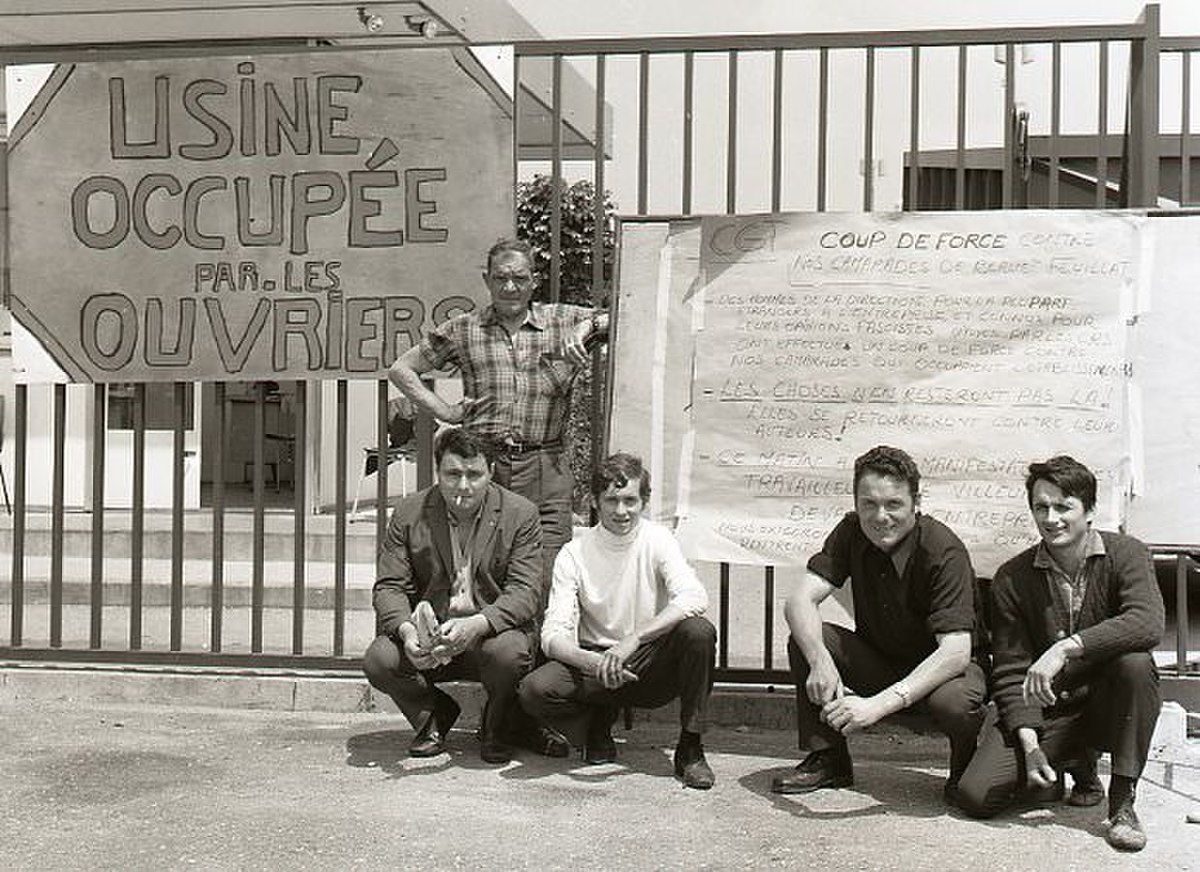
May 68
FranceBeginning in May 1968, a period of civil unrest occurred throughout France, lasting some seven weeks and punctuated by demonstrations, general strikes, as well as the occupation of universities and factories. At the height of events, which have since become known as May 68, the economy of France came to a halt. The protests reached such a point that political leaders feared civil war or revolution; the national government briefly ceased to function after President Charles de Gaulle secretly fled France to West Germany on the 29th. The protests are sometimes linked to similar movements that occurred around the same time worldwide and inspired a generation of protest art in the form of songs, imaginative graffiti, posters, and slogans.
The unrest began with a series of far-left student occupation protests against capitalism, consumerism, American imperialism and traditional institutions. Heavy police repression of the protesters led France's trade union confederations to call for sympathy strikes, which spread far more quickly than expected to involve 11 million workers, more than 22% of the total population of France at the time. The movement was characterized by spontaneous and decentralized wildcat disposition; this created a contrast and at times even conflict internally amongst the trade unions and the parties of the left. It was the largest general strike ever attempted in France, and the first nationwide wildcat general strike.
The student occupations and general strikes initiated across France were met with forceful confrontation by university administrators and police. The de Gaulle administration's attempts to quell those strikes by police action only inflamed the situation further, leading to street battles with the police in the Latin Quarter, Paris.
The events of May 1968 continue to influence French society. The period is considered a cultural, social and moral turning point in the history of the country. Alain Geismar—one of the leaders of the time—later stated that the movement had succeeded "as a social revolution, not as a political one".
